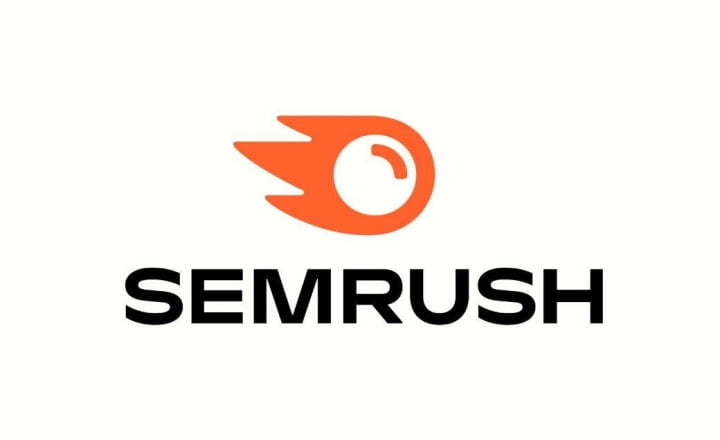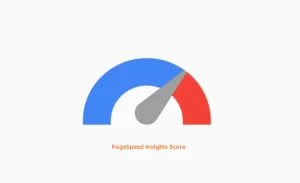In the world of digital marketing, keyword research is a crucial step in optimizing your website and content for search engines.
By identifying the right keywords, you can improve your website’s visibility, attract more organic traffic, and ultimately drive conversions.
To help you in this process, we have compiled a comprehensive list of the best keyword research tools available. These tools will assist you in finding valuable keywords that align with your business goals. So, let’s dive in and explore these powerful keyword research tools!

What is Keyword Research?
Keyword research is the process of identifying and analyzing the words and phrases that people use when searching on search engines.

By understanding these keywords, you gain valuable insights into user behavior and intent, enabling you to optimize your website and create targeted content that aligns with what users are searching for.
Keyword research involves more than just brainstorming; it requires the use of powerful tools and techniques to uncover the most relevant and high-performing keywords for your website.
Best Keyword Research Tools
There are many keyword research tools available, but these are some of the most popular ones that you can use to unlock your SEO potential:
Google Trends
Google Trends is a free and powerful keyword tool that allows you to track the popularity of keywords over time. By entering your keyword into the search bar and clicking “Explore,” you can see whether the interest in that keyword is growing, declining, or remaining steady.

Google Trends also provides related queries and topics based on your main keyword, helping you identify related keywords to target.
One of the unique features of Google Trends is the ability to compare multiple keywords against each other. This allows you to determine which keyword is more popular and make informed decisions about your content strategy.
Keyword Overview

Semrush’s Keyword Overview tool provides a detailed analysis of any keyword in their database. To use this tool, simply enter the keyword(s) you want to analyze, select the database country, and click “Search.” The tool generates an overview report consisting of three main sections.
The first section offers key metrics such as search volume, keyword difficulty, and search intent. It gives you a quick snapshot of the keyword’s performance and purpose.
The second section provides an overview of related keywords, including keyword variations, questions, and related terms.
By exploring these additional keywords, you can uncover new opportunities to optimize your content.
The third section, called SERP Analysis, shows the top-ranking pages for the analyzed keyword. This information is invaluable for understanding the competition and identifying areas for improvement.
Keyword Magic Tool
To narrow down your results, the Keyword Magic Tool provides various filters. You can filter by questions to find keyword ideas in the form of queries.
Additionally, you can explore different variations of your seed keyword by applying filters for broad match, phrase match, exact match, and related keywords.
By selecting specific languages, you can search for keywords in different languages. You can also filter by search volume range and keyword difficulty level to find keywords that align with your goals.
For a detailed guide on how to find the best keywords using the Keyword Magic Tool, check out Semrush’s comprehensive keyword research guide.
Keyword Manager
Semrush’s Keyword Manager is a valuable tool for organizing and managing your keyword lists. Once you have identified a list of relevant keywords, you can send them directly to Keyword Manager for easy tracking and analysis.
Organizing your keywords into clusters is a popular SEO technique that helps optimize your content for different variations of a keyword.
Keyword clustering involves grouping similar keywords based on search intent and creating dedicated pages to target each cluster.
When creating content, you can increase your chance of ranking for a wider range of related keywords and attracting more organic traffic by using the keywords within a cluster.
Organic Research
Semrush’s Organic Research tool allows you to gain valuable insights into your competitors’ keyword data. By entering a competitor’s domain, you can see all the keywords they rank for in Google’s top 100 results.
This information is crucial for understanding your competition and identifying new keyword opportunities for your website.
The Organic Research tool provides various filters to help you refine your analysis. You can filter by positions, volume, keyword difficulty, intent, and SERP features.
By applying these filters, you can focus on specific keywords that are most relevant to your business and target audience.
QuestionDB
QuestionDB is a unique keyword research tool that aggregates questions from popular forum sites like Reddit and Stack Exchange.
This tool provides valuable insights into the questions people are asking related to your industry or niche. You can create more useful and relevant content by understanding the questions your audience wants answered.
Using QuestionDB is simple. Start by coming up with a list of seed keywords related to your topic. Then, enter one of these keywords into QuestionDB to generate a list of questions.
Repeat this process for each seed keyword to uncover even more keyword ideas that align with your target audience’s interests.
Keyword Surfer
Keyword Surfer is a free Google Chrome extension that provides keyword suggestions directly in the search engine results pages (SERPs). Once installed, it displays related keywords, search volume, and other useful information in a panel on the right side of the SERP.
This allows you to quickly find new keyword opportunities based on your original search query.
In addition to keyword suggestions, Keyword Surfer provides valuable data about each search result, including estimated monthly traffic, word count, keyword density, and even changes to the original title tag.
AlsoAsked
AlsoAsked is a powerful keyword research tool that aggregates questions from Google’s People Also Ask (PAA) boxes.
These boxes provide a goldmine of question-based keywords related to your main topic. By visualizing the relationships between these questions, AlsoAsked helps you structure your content to cover all the most important questions in the order they are likely to be asked.
When searching for a keyword on AlsoAsked, you will see a branching diagram that illustrates the relationship between different questions. You can uncover additional keyword opportunities by clicking on each branch.
This tool not only helps you discover relevant topics but also guides you in organizing your content to provide comprehensive answers to your audience’s questions.
AnswerThePublic
AnswerThePublic is a unique keyword research tool that generates keyword ideas based on autocomplete suggestions from search engines like Google.
By entering your seed keyword, you can uncover a wide range of questions people are searching for related to that topic. This tool helps you understand your audience’s needs and provides insights that can inform your content strategy.
AnswerThePublic presents the generated keywords visually, grouped by categories such as questions, prepositions, comparisons, and related searches.
By addressing these queries in your content, you can provide valuable information to your audience and increase your chances of ranking for these keywords.
Keyword Gap
Semrush’s Keyword Gap tool allows you to compare your keyword profile with that of your competitors. By identifying common keywords and missing keywords, you can understand where you stand with your competition and uncover new keyword opportunities.
To use the Keyword Gap tool, simply enter your domain and up to four competitor domains. The tool will generate a comprehensive report showing the overlap between your keyword profiles and the keywords your competitors rank for but you don’t.
This information is invaluable for optimizing your content and closing the gap with your competitors.
Soovle
Soovle is a free keyword research tool that aggregates search suggestions from various search engines and websites, including Google, Bing, Amazon, eBay, and YouTube.
By entering your seed keyword, you can generate a list of autocomplete suggestions from multiple sources.
Soovle provides a user-friendly interface that allows you to explore each search engine’s suggestions and view live search results. You can save keywords for later reference and use this tool to gather keyword ideas from multiple platforms.
Google Keyword Planner
Google Keyword Planner is a popular keyword research tool primarily designed for Google Ads advertisers. However, it can also be used for SEO keyword research.
To access Keyword Planner, you need a Google Ads account. With this tool, you can discover new keywords and access historical data about keywords.

To find new keywords, enter your seed keyword and click “Discover new keywords.” Keyword Planner will generate a list of keyword ideas based on your input.
Additionally, you can upload a list of keywords to get search volume data and historical performance insights.
Keyword Tool
Keyword Tool is a powerful keyword research tool that uses autocomplete data from various search engines and websites, including Google, Bing, YouTube, Amazon, and more.
By selecting the search engine and country, you can generate a list of autocomplete suggestions, questions, and prepositions related to your seed keyword.
While the basic version of Keyword Tool is free, the paid version provides additional metrics such as search volume and keyword competition.
TubeBuddy
TubeBuddy is a browser extension designed specifically for YouTube keyword research and optimization. By using its Keyword Explorer feature, you can find relevant keywords to optimize your YouTube channel and videos.
This tool provides a score for each keyword, taking into account competition and optimization of the top-ranking videos.
TubeBuddy also offers valuable insights into the performance of YouTube videos, including search volume trends, related video topics, and tags.
By leveraging this information, you can optimize your videos and improve their visibility on YouTube.
Organic Traffic Insights
Semrush’s Organic Traffic Insights tool provides comprehensive keyword data for your website, including keywords you currently rank for and those that were previously hidden under the “not provided” category in Google Analytics.
By analyzing your current keyword profile, you can identify underperforming keywords and optimize your content to increase your ranking position and organic traffic.
Organic Traffic Insights integrates data from Google Analytics and Google Search Console to provide a holistic view of your website’s keyword performance.
By exploring this data, you can uncover valuable insights and make data-driven decisions to improve your SEO strategy.
Why is Keyword Research Important?
The importance of keyword research cannot be overstated. It serves as the foundation for your website’s optimization and content creation strategies.
Here are some key reasons why keyword research is crucial:
Understanding User Intent
Keyword research provides valuable insights into what users are searching for and the specific terms they use. By understanding user intent, you can tailor your website’s content to meet their needs and provide relevant information.
Improving Website Visibility
Ranking well on search engine result pages (SERPs) is essential to driving organic traffic to your website.
By incorporating relevant keywords into your website’s content and meta tags, you increase the likelihood of appearing in search results when users search for those keywords.
This improved visibility can lead to increased website traffic and potential conversions.
Identifying Content Gaps
Keyword research helps identify gaps in your website’s content. By analyzing the keywords users are searching for, you can uncover topics and areas that are currently underserved or not covered at all on your website.
This presents an opportunity to create new content that fills these gaps and attracts more visitors to your site.
Understanding Competitor Strategies
Studying the keywords your competitors are targeting can provide valuable insights into their SEO strategies. By analyzing their keyword choices and rankings, you can identify areas where you can compete and potentially outrank them.
Tools like SEMrush and Conductor Searchlight are particularly useful for uncovering the keywords your competitors are ranking for.
5 Tips for Effective Keyword Research
After understanding the importance of keyword research, let’s look at some practical tips to help you conduct it effectively:
Define Your Research Scope
Before diving into keyword research, it’s crucial to define the scope of your research. Determine the purpose of your research—whether it’s to assess your website’s current performance, identify content gaps, or find keywords for a specific page.
By clarifying your objectives, you can focus your research efforts and gather the most relevant data.
Consider Search Intent
When selecting keywords, it’s not just about the search volume. Understanding user intent is key to targeting the right keywords.
Take the time to analyze the search engine results for a given keyword and see what type of content is currently ranking.
If your content doesn’t align with the intent behind the keyword, it may be more beneficial to target a different keyword that better matches the content you can provide.
Analyze Competitor Keywords
Your competitors can provide valuable insights into keyword opportunities. Tools like SEMrush and Google Keyword Planner allow you to analyze your competitors’ websites and identify the keywords they are ranking for.
By understanding their strategies, you can uncover new keyword ideas and potentially outrank them in search results.
Leverage Google Search
Google itself is an invaluable resource for keyword research. Take advantage of Google Suggest, which offers keyword variants and long-tail keyword suggestions as you type in the search bar.
Additionally, explore the “People Also Ask” section in the search results to discover the questions and queries users are asking related to your target keywords.
Target Keyword Variations and Queries
Don’t limit yourself to a single keyword. Once you’ve identified a primary keyword, explore variations and related terms to include on your page.
Targeting synonyms and semantically related keywords can expand your reach and improve rankings for a broader range of search terms.
Additionally, consider targeting queries and questions related to your keyword to capture users who are seeking specific information or solutions.
Conclusion
Keyword research is an essential part of any SEO strategy, and these top 15 keyword research tools can help you unlock your SEO potential.
Whether you’re looking for data on search volume, keyword difficulty, or related terms, these tools can help you find the information you need.
So, give them a try today and start optimizing your content for search engines!


